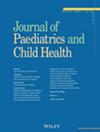Can Intravenous Caffeine Citrate Be Used for Severe Asthma Exacerbation in Children? A Retrospective Comparative Study
Abstract
Aim
To assess the effectiveness of intravenous caffeine citrate in paediatric asthma exacerbation unresponsive to beta2-agonists and steroids.
Methods
A 10-year retrospective cohort study was conducted on asthmatic children unresponsive to beta2-agonists and steroids, who were treated with either intravenous caffeine citrate or magnesium sulphate. The study outcomes were changes in the Paediatric Respiratory Assessment Measure (PRAM) score, duration of oxygen therapy and paediatric intensive care unit (PICU) length-of-stay.
Results
Overall, 296 children were treated in the PICU between January 1, 2011, and December 31, 2020. Fifteen and 26 children unresponsive to beta2-agonists and steroids (median ages 2.3 [0.7–11] and 3.0 [1.2–8.5] years), respectively, received caffeine citrate and magnesium sulphate. The two groups showed similar demographic characteristics and baseline parameters. At 24 and 48 h, the median (IQR) PRAM scores for the caffeine and magnesium groups were 4 (2–6) and 5 (4–6), respectively (p = 0.27), and 7 (6–8) and 8 (5–9), respectively (p = 0.57). The median (IQR) durations of PICU stay for the caffeine and magnesium groups were 36 (19–46) and 32 (23–45) h, respectively (p = 0.77). The median (IQR) durations of oxygen therapy for the caffeine and magnesium groups were 25 (10–30) and 20 (15–30) h, respectively (p = 0.29). No serious adverse events occurred in the caffeine group. One occurred in the magnesium group.
Conclusions
Caffeine citrate and magnesium sulphate demonstrated comparable effectiveness in treating steroid- and beta2-agonist-resistant asthma. A multicentre prospective study is needed to validate these results.

 求助内容:
求助内容: 应助结果提醒方式:
应助结果提醒方式:


